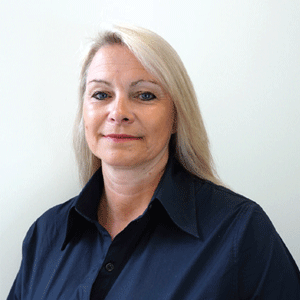The fashion industry thrives on constant change, and with new technologies being introduced every now and then, the pace of these changes has also accelerated like never before. This rapid evolution comes with its own challenges, however, it also presents opportunities for disruption and growth through technological innovation. In a complex and volatile environment, it is essential that fashion education is value-based and focuses on developing skills and competencies, rather than just acquiring knowledge. With a focus on competencies, it is the entrepreneurial mindset that underpins a Fashion Business School (FBS) education at London College of Fashion (LCF), UAL.
“At FBS, our ambition is to be the number one global business school for a responsible fashion future. To reach that goal, our research and teaching revolve around London College of Fashion’s core value of shaping lives through fashion. We want fashion businesses to put purpose at the core of their operating model and to take due care of our planet and all its citizens in their pursuit of growth. As a business school, we cannot deny the profit and growth imperative, but we seek to challenge pre-existing routes and conceptions around it”, speaks Liz Gee, Dean of Fashion Business School.
Started in 1906, the London College of Fashion was born through a merger of three trade schools, which taught students the skills the industry needed. London College of Fashion is the only fashion institution that has a dedicated Business School. “Our roots in trade schools make Fashion Business School at London College of Fashion a very special place to study. When I joined the college, LCF was still known as the London Institute and our building on Davies Street was replaced by the Elizabeth Line entrance to Bond Street tube”, says Liz Gee, Dean of Fashion Business School.
London College of Fashion holds strong connections within the fashion industry. The institute has built a global community of staff, students, and industry professionals who learn together, creating a unique educational experience.
Students benefit from the regular industry guests who are integrated into the curriculum, providing extracurricular projects, internships, and work placements. “Our faculty members collaborate with industry partners on research projects, sharing their expertise and insights, and in return, our partners gain access to our pool of talented graduates, the next generation of fashion leaders.
We believe that gaining real-life industry experience is a crucial aspect of our education. Many of our undergraduate courses embed work experience opportunities within the curriculum. Additionally, most of our undergraduate courses allow students to take an optional intercalated year in industry between their second and third years of study. We also offer an intercalated enterprise year for students across the college who aspire to start their own businesses.
At London College of Fashion, we are committed to providing our students with unparalleled access to the fashion industry, so they can develop the skills, knowledge, and network they need to succeed”, briefs Liz Gee, Dean of Fashion Business School. The faculty at London College of Fashion is a global and diverse community that brings together traditional academics with a research focus and experienced 'pracademics,' many of whom have transitioned from leadership positions in the industry to become passionate fashion educators.
The institute is committed to supporting all the staff in their ongoing professional development, which includes pursuing formal teaching qualifications, attending global research conferences, and engaging with industry bodies. This enables the teaching staff at the London College of Fashion to continually grow in their respective fields and to remain fluid with the latest industry developments, ensuring that they can provide our students with the most relevant and valuable education possible. “At London College of Fashion, we are proud of our faculty's expertise and dedication to their craft, and our students benefit immeasurably by learning from such talented and committed professionals”, says Liz Gee.
Believing that immersion in the fashion industry is essential for our student's success, the London College of Fashion ensures the relevance and currency of its curriculum, as they consult with industry partners when developing new courses and refreshing existing degree programs.
The college believes that they are fortunate to have an industry advisory panel consisting of senior fashion industry leaders who serve as critical friends, challenging the vision and strategy for the school and ensuring that the students are wellprepared for the challenges and opportunities of the fashion world.
“We are committed to providing our students with a rich and varied learning experience that allows them to pursue their passions and interests. We employ a wide variety of teaching techniques and assessment modes that are both authentic and relevant to the fashion industry. Our students have the opportunity to pitch their business ideas, present product or marketing plans to industry panels, negotiate contracts, and develop video and podcast content, in addition to more traditional assessments such as essays, reports, and exams”, shares Liz.
At LCF’s Fashion Business School, the team is committed to continuously improving the quality of the education they impart through innovative pedagogy. The institute understands the need to adapt to the growing global demand for traditional business subjects applied in the dynamic context of the fashion industry. “Our recent course additions reflect the industry's need for practical skills and embrace online course opportunities.
For example, our unique B.Sc. Cosmetic Science course provides practical scientific lab skills taught within the context of the beauty and well-being industries. Our courses are accredited by prestigious awarding bodies such as CMI, BPS, and many courses give students the opportunity to achieve additional external accreditation, such as ACPRO, CIMA, and CIM”, speaks Liz.
As holders of the Small Business Charter, London College of Fashion is committed to supporting small business growth and scaling ambitions. Many of our planned developments focus on this area. “Our recent launch of Help to Grow, a UK government-backed training scheme, is a testament to this commitment. We are constantly developing our Creative Fashion Enterprise offer, and our relocation to East Bank, the UK’s newest Cultural Quarter and destination for innovation, creativity, and learning, at the heart of Queen Elizabeth Olympic Park in east London, will provide even more opportunities for innovation and collaboration”, signs off Liz Gee.
“At FBS, our ambition is to be the number one global business school for a responsible fashion future. To reach that goal, our research and teaching revolve around London College of Fashion’s core value of shaping lives through fashion. We want fashion businesses to put purpose at the core of their operating model and to take due care of our planet and all its citizens in their pursuit of growth. As a business school, we cannot deny the profit and growth imperative, but we seek to challenge pre-existing routes and conceptions around it”, speaks Liz Gee, Dean of Fashion Business School.
Started in 1906, the London College of Fashion was born through a merger of three trade schools, which taught students the skills the industry needed. London College of Fashion is the only fashion institution that has a dedicated Business School. “Our roots in trade schools make Fashion Business School at London College of Fashion a very special place to study. When I joined the college, LCF was still known as the London Institute and our building on Davies Street was replaced by the Elizabeth Line entrance to Bond Street tube”, says Liz Gee, Dean of Fashion Business School.
Offering a Unique Range of Courses
London College of Fashion holds strong connections within the fashion industry. The institute has built a global community of staff, students, and industry professionals who learn together, creating a unique educational experience.
Students benefit from the regular industry guests who are integrated into the curriculum, providing extracurricular projects, internships, and work placements. “Our faculty members collaborate with industry partners on research projects, sharing their expertise and insights, and in return, our partners gain access to our pool of talented graduates, the next generation of fashion leaders.
We believe that gaining real-life industry experience is a crucial aspect of our education. Many of our undergraduate courses embed work experience opportunities within the curriculum. Additionally, most of our undergraduate courses allow students to take an optional intercalated year in industry between their second and third years of study. We also offer an intercalated enterprise year for students across the college who aspire to start their own businesses.
At London College of Fashion, we are committed to providing our students with unparalleled access to the fashion industry, so they can develop the skills, knowledge, and network they need to succeed”, briefs Liz Gee, Dean of Fashion Business School. The faculty at London College of Fashion is a global and diverse community that brings together traditional academics with a research focus and experienced 'pracademics,' many of whom have transitioned from leadership positions in the industry to become passionate fashion educators.
The institute is committed to supporting all the staff in their ongoing professional development, which includes pursuing formal teaching qualifications, attending global research conferences, and engaging with industry bodies. This enables the teaching staff at the London College of Fashion to continually grow in their respective fields and to remain fluid with the latest industry developments, ensuring that they can provide our students with the most relevant and valuable education possible. “At London College of Fashion, we are proud of our faculty's expertise and dedication to their craft, and our students benefit immeasurably by learning from such talented and committed professionals”, says Liz Gee.
Leading with Industry-Academia Partnerships
Believing that immersion in the fashion industry is essential for our student's success, the London College of Fashion ensures the relevance and currency of its curriculum, as they consult with industry partners when developing new courses and refreshing existing degree programs.
The college believes that they are fortunate to have an industry advisory panel consisting of senior fashion industry leaders who serve as critical friends, challenging the vision and strategy for the school and ensuring that the students are wellprepared for the challenges and opportunities of the fashion world.
“We are committed to providing our students with a rich and varied learning experience that allows them to pursue their passions and interests. We employ a wide variety of teaching techniques and assessment modes that are both authentic and relevant to the fashion industry. Our students have the opportunity to pitch their business ideas, present product or marketing plans to industry panels, negotiate contracts, and develop video and podcast content, in addition to more traditional assessments such as essays, reports, and exams”, shares Liz.
Charting the Path Ahead
At LCF’s Fashion Business School, the team is committed to continuously improving the quality of the education they impart through innovative pedagogy. The institute understands the need to adapt to the growing global demand for traditional business subjects applied in the dynamic context of the fashion industry. “Our recent course additions reflect the industry's need for practical skills and embrace online course opportunities.
For example, our unique B.Sc. Cosmetic Science course provides practical scientific lab skills taught within the context of the beauty and well-being industries. Our courses are accredited by prestigious awarding bodies such as CMI, BPS, and many courses give students the opportunity to achieve additional external accreditation, such as ACPRO, CIMA, and CIM”, speaks Liz.
As holders of the Small Business Charter, London College of Fashion is committed to supporting small business growth and scaling ambitions. Many of our planned developments focus on this area. “Our recent launch of Help to Grow, a UK government-backed training scheme, is a testament to this commitment. We are constantly developing our Creative Fashion Enterprise offer, and our relocation to East Bank, the UK’s newest Cultural Quarter and destination for innovation, creativity, and learning, at the heart of Queen Elizabeth Olympic Park in east London, will provide even more opportunities for innovation and collaboration”, signs off Liz Gee.



